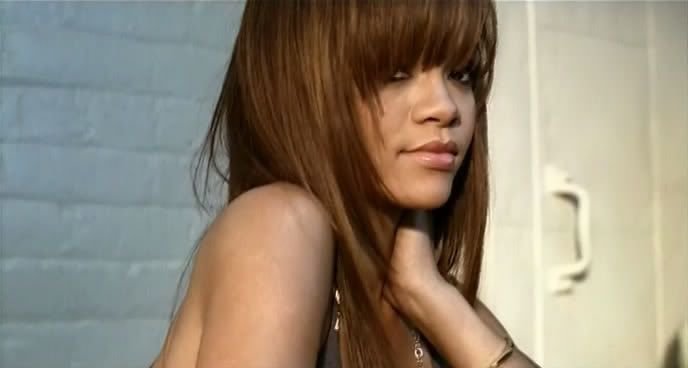In the midst of a series of disco-infused pop singles within two years, the Barbadian r&b/pop singer Rihanna released a rather odd ballad called "Unfaithful". In the MTV's review of the 2000s, it ranked as one of the best singles of the decade. But pop observers found it incredibly strange at the time. The song is unusual in many ways. First of all, it's a cold haunting song guided by piano chords reminiscent of the band Evanescence. It is about a girl who's becoming a "murderer" - perhaps figuratively, a killer of affection. This concept was much talked about within circles of music scholars because it unconventionally featured a girl in the position of the emotional abuser, and it produced a music video that ignited the flame even more. Yet they dismissed this moment as a talent show-off, that slowburn within pop albums intended to expose the vocal range of the artist. Following her own preservation of dance music in the charts, critics like Sal Cinquemani found the ballad "fucking weird". For me, it's a milestone in Rihanna's career.
Reading the lyrics, one would agree with Cinquemani's observation. In the first verse, she speaks of "searching for the 'Right'" but she assumes that "''Wrong' really loves her company". Then enters the subject of the song: a certain "He". Towards the refrain, it becomes obvious that she is indeed cheating "him". Yet the chorus suggests that she does not want to continue because she considers cheating the honest man as a form of murder. This is a young lady exposing her guilty pleasure, and you can see her confusion in her play of words: "Our love/His trust/I might as well take a gun and put it to his head/Get it over with/I don't wanna do this anymore".
Yet the real departure from the usual Rihanna image comes in the music video where the already dark theme of the song is given a much deeper visualization. It must be noted that she was only 18 when the video was shot, which is another reason why the whole thing about "Unfaithful" became immensely awkward. The video starts with the girl dressing up. Clad in a black fit sleeveless dress, she's vain and titillating. Then on a close-up of the visage, you can see cold beauty. She almost looks like Beyonce, older and maturer than her age yet maintaining a certain Lolita sexiness. Rihanna follows the song's narrative in not going all the way to violence (unlike what happened to the Adrian Lyne film of the same title, obviously an influence). We find the girl tiptoeing around with a white pianist but in the end, she goes back to her faithful man. She embraces him with a facial expression suggesting the guilt aforementioned, but it changes into a sincere smile - this time, she'll be more loyal.
The coming of this moment suggested a whole new different image from the Barbadian singer. It was probably an awkward presence in pop music at the time because it wasn't expected of the artist and it presented a new concept. "Unfaithful" placed Rihanna in the shoes of what seems to be a femme fatale inches away from dangerous crime. Succeeding the blissful "SOS" single, the image here bears the same sexual exposure but it's more confident. The maturely slick physique is perhaps a weapon, a magnet that attracted the likes of two men. And it's probably this sexuality that she is trying to avoid usage.
More notable is the fact that the video presents: that women can also take this side of the relationship. Rihanna's role in this is pretty much a gem - yes, the object of male gaze, but in power and never subverted. Not that I'm endorsing infidelity as a good thing but the way she presented this flipside to the conventional situation calls a much bigger and realistic picture of the nature of complex relationships. One that would call to mind the rise of "friends with benefits" where both male and female agree on the sex but not on the love, hence an issue that threatens the strength of heterosexual union.
The reason why I consider it a milestone in her art is because at the time when she was about to be labeled as just another pop dance flash-in-the-pan, she started off what would be a series of sexually-challenging work. In a ripe age of 18, a pop singer would follow the Lolita example most prominent with Britney Spears, but Rihanna (much like Beyonce) begged a more richer and political presentation of the female. It can also be read as a representation of the neo-colonialism of Barbados (she is smitten by a "white" pianist for a reason) but that's another thing. With "Unfaithful", she has launched a fierce statement against abuse. And as her discography moved along, it got richer and more profound.
- Gio Potes, March 2012


Well the fact that she's selling her music in the Popular meant that she must incorporate her body into the object of desire. It's the way the system of selling works. She must sell herself to survive, aside from gaining fame and men.
TumugonBurahin